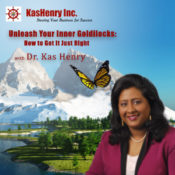Financial Freedom through Responsible Capitalism By Kas Henry
When Adam Smith prescribed a modern economic framework to free the world of the oppression of...
Read Moreby VoiceAmerica | Jun 29, 2017 | Empowerment | 0 |
When Adam Smith prescribed a modern economic framework to free the world of the oppression of...
Read Moreby VoiceAmerica | May 17, 2016 | Business | 0 |
With the launch of Building Banking on Values, a new VoiceAmerica radio series I’m hosting...
Read More


